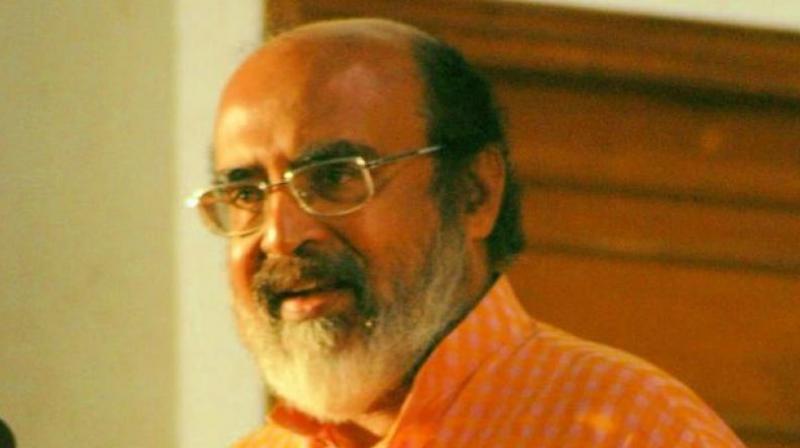Experts say Kerala Infrastructure Investment Fund Board plan may lead to debt trap
Kerala's options of creating investment and employment may be limited within the present so-called federal structure.

KOCHI: The budget proposals of Finance Minister Thomas Isaac, banking on Kerala Infrastructure Investment Fund Board (KIIFB) to fund major development projects is likely to push the state to a Latin American model debt trap, warns a section scholars. In a comment posted on Facebook Dr. K.T. Rammohan, former dean of School of Social Sciences, Mahatma Gandhi University, said that the highlight of "budget was not welfare" but "the central message is infrastructural development through KIIFB." Disputing Mr Isaac's claim "that this would be materialised through debentures" Mr Rammohan pointed at resources being raised "through public-private participation projects involving import of debt capital as mediated through the KIIFB".
"In the absence of wider development of self-sustaining employment and income, the strategy may well push Kerala to... Latin American debt traps," he said. Responding to pointes raised by Mr Rammohan, P.J. James, a former professor of economics and politburo member of CPI-ML Red Star, described KIIFB as "an ingenious neoliberal innovation consistent with the development paradigm espoused by Pinarayi government". According to Mr James, projects under KIIFB "have to work on PPP basis capable of generating viable returns whether in roads or in drinking water". K.K. Eswaran Namboodiri, another economist, however, objected to the description of the budget as neo-colonial and neo-liberal.
According to him "the KIIFB kind of experiments is required to overcome the limitations imposed by the FRBM Act and several other neo-liberal restrictions on public expenditure. Hence, I feel that this budget in a moderate way offers a challenge to the neo-liberal approach." Mr Namboodiri also mentioned about the constraints faced by state governments in raising resources in the present situation. Mr Rammohan has also raised pertinent questions about lack of a clear strategy for raising resources through taxing the rich. "Hardly any increase in taxation. Not a positive attribute this because the rich people and accumulation processes should be taxed, not exempted," he pointed out.
Stating that there was no harm presenting a deficit budget he however called for the need to indicate "how the deficit would be financed". "Kerala's options of creating investment and employment may be limited within the present so-called federal structure. But clearly, KIIFB may not be the sole-option," he argued. He also pointed out that "the budget would have been convincing had the Fin Min presented an outcome budget of the previous year, noting the shortfall in actual expenditure as against the projected expenditure and reasons thereof."

